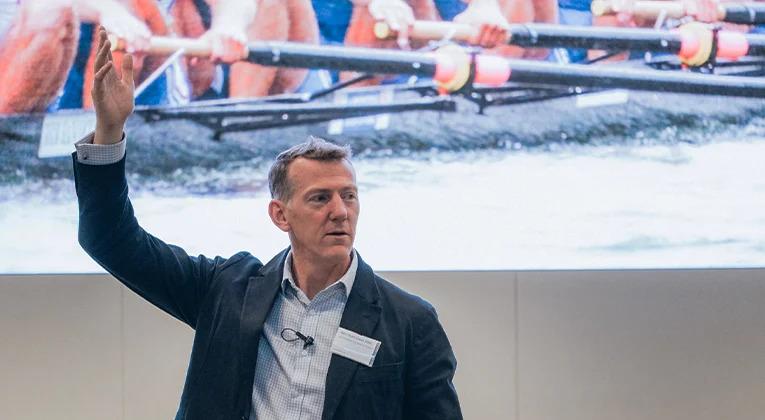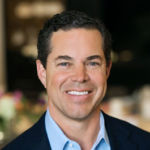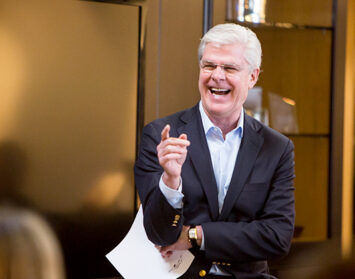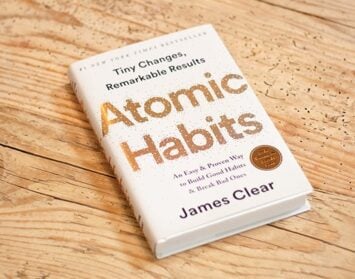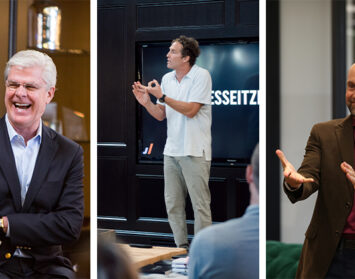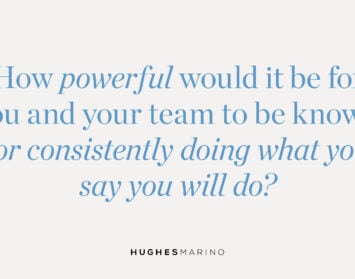By Jason & Shay Hughes
One of our favorite books, Will it Make the Boat Go Faster?, written by British Olympic gold medalist rower, Ben Hunt-Davis, shares the inspiring story of his team’s path from merely participating in the international circuit to reaching the utmost pinnacle of success on the world’s stage. After years of coming in last in international competitions and decades without medaling, the British rowing team became ruthlessly focused on a singular and profound goal: making their boat go faster. That one goal became the team’s driving force and litmus test of every decision they made. They relentlessly pursued that purpose and questioned everything they did in the process. They scrutinized every minute detail, looking for ways they could make their boat go faster, and at the same time, eliminating anything that didn’t make the boat go faster. Ultimately, their myopic focus led the British rowing team to one of the greatest turnarounds in rowing history, taking them from consistent last place finishes to bringing home the gold in the 2000 Olympics in Sydney, Australia, the first time since 1912.
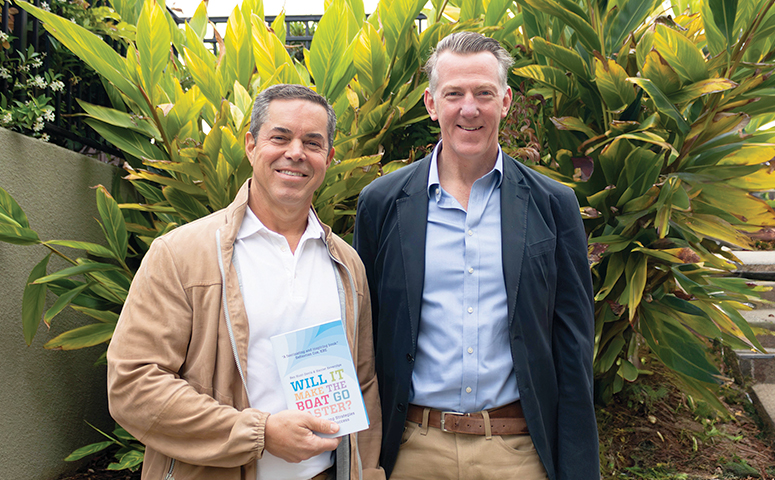
Recently, our team was fortunate to learn firsthand from Ben on how he has distilled those learnings into a framework that anyone—and any team and company, no matter the industry—can apply to their personal and professional lives. Here are four of the most valuable takeaways we learned and are applying daily as a team at Hughes Marino.
Step One: Decide on Your Crazy Goal!
Do you ever ask yourself or your team, what is a goal that is so demanding and ambitious that people will think you are nuts for trying to achieve it? That’s what Ben calls the “Crazy Goal.”
In the case of the British rowing team, the path they would take to become an Olympic eligible team would look vastly different than the path they needed to take to be a gold medal winning Olympic team. The team’s ultimate crazy goal was not to just be in the Olympics, but to win the Olympic gold. Ben made the great point that how big you set your goals determines how good you are going to become.
Getting really clear on that ambitious goal provided Ben’s rowing team with a critically important and clear lens through which everything else was then evaluated. Case in point, running was a usual part of rowing team training programs. But the UK team determined that running wasn’t the highest use of their physical output and in fact, didn’t make the boat go faster. Therefore, they removed running from their training plan to focus all of their energy on things that truly made the boat go faster.
With your own team, plan time to sit down and determine what your team’s crazy goals are. What are you truly wanting to achieve? Are you aiming to be a participant in the race, or to actually win the race? What is your team’s equivalent to earning a gold medal?
Step Two: Focus on Performance & the Results Will Follow
Ben shared a profound concept around performance versus results. While the result—winning the gold medal—is what they get measured by, how they perform should be their focus. As Ben said, they could control their performance. It’s similar to another famous coach we love at Hughes Marino, the former head coach of Alabama’s football team, Nick Saban. He is famous for saying “Trust the process and the wins will follow.” It was through that singular focus on optimizing their daily performance that they identified the physical, technical, equipment and mental performance indicators that would help them achieve their crazy goal.
To create accountability for their singular goal of making the boat go faster, they measured their performance so they knew precisely where improvement was happening and where it was not. They challenged each other to get curious about every aspect of performance, even minor details that could easily be overlooked. Every detail that contributed to their performance that they could control needed to be optimized. In a race sometimes decided in less than a second, the aggregation of marginal gains can be the difference maker.
In the business world, this same concept can be applied. What can we control about our performance, and what actions can we take to measure and optimize that performance?
Step Three: Control the Controllables
In the case of Ben’s team, there was a lot they couldn’t control. They couldn’t control the weather conditions, the wind speed, the water’s choppiness, the other team’s practice plans, how comfortable the hotel bed at the race site might be, and on and on. Instead of focusing on the things that were out of their control, they focused on two things.
First, they identified everything they could control and optimized those factors to their maximum ability. They were relentless in controlling the controllables and doing everything in their power to improve each one of those factors for maximum performance. They knew they couldn’t control how fast other teams might row on race day, but they had control over their own performance. Whether anyone would row faster that day was out of their hands, but they knew if they crossed the finish line at their goal time, that would be fast enough to win in past races, so they set their sights on achieving that time. They were focused on controlling the controllables.
Secondly, they identified everything they couldn’t control, but that they could influence. Of all the variables that were out of their control, they devised a plan of how best to exert influence over those variables, so the team was prepared and aligned on how to handle those variables if they arose.
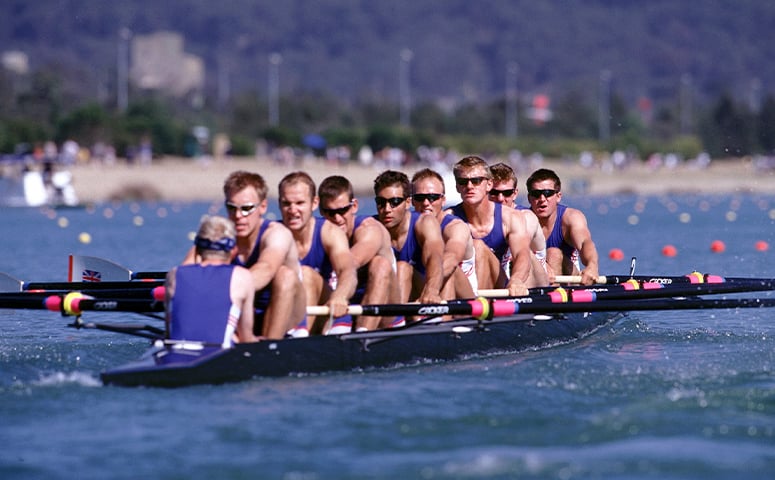
If it wasn’t something they could control or influence, they let it go, as they didn’t want it to take up space in their heads. It is critical to ask ourselves: what can I actually control, and am I optimizing all the levers of those controllables? Where does my time and energy truly need to be directed to optimize the controllables? And of the things that are out of my control, how can I have influence over them? Breaking that down can help us focus where our time and energy is best spent and help disregard non-productive distractions.
Step Four: How Do We Work Together?
Much like any team, whether an athletic team, a company or a family unit, Ben’s rowing team was comprised of many different personalities from different backgrounds. While not everyone had to be best friends, there was a deep mutual level of respect and commitment toward the common goal among the entire team. That commitment meant following the agreed-upon framework, taking responsibility for their individual contributions and uplifting each other.
But it also meant that they all had a responsibility to each other to speak up if something wasn’t working. One of the most profound statements Ben shared with our team was, “If you see something that’s not as good as it could be and choose not to discuss it, you’re helping us lose.” They took this so seriously that they felt that they would be contributing to the team’s downfall if they remained silent on a matter that needed to be addressed.
It takes a strong commitment to your goals to both start—and stop—what isn’t working and to have the courage to speak up when something isn’t going to directly contribute to accomplishing the crazy goal.
One of the most profound moments of Ben’s talk was when he spoke about the opening ceremony of the Olympics. One might imagine the opening ceremony being one of the most memorable nights for an Olympian, celebrating the enormous milestone of making it to the Olympics—but for Ben’s team, there was no celebration. Their race was set for the next day, day one of the games, and the team collectively decided that attending the opening ceremony wasn’t going to contribute to accomplishing their crazy goal—and in fact could negatively impact their performance. Instead, they stayed home and watched the ceremony together on TV and went to bed early. Every single one of their competitors participated in the opening celebration—but Ben’s team won the gold medal.
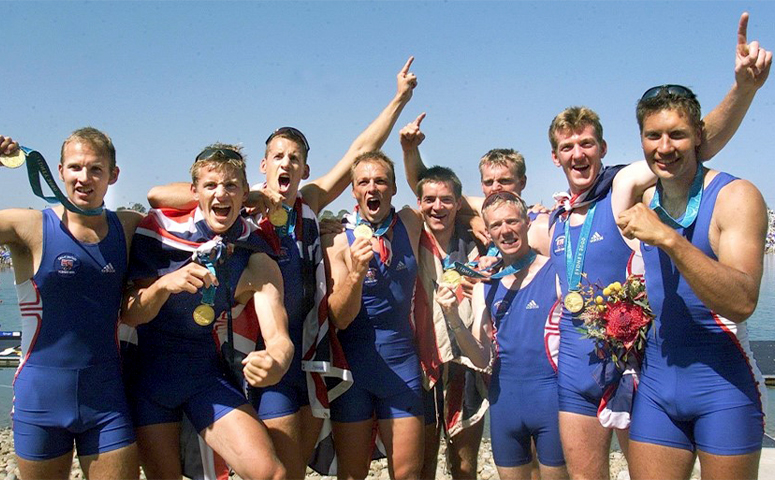
We also loved that Ben shared an image of the nearly 60 people on their team who contributed to helping make the boat go faster. While there were just nine men that stood with Olympic gold medals around their necks that day, there was a whole team behind those nine that was just as invested in the team’s success as those in the boat racing. Every single person on the entire team contributed to the gold medal win, by optimizing performance, controlling the controllables and working together as a united team towards their crazy goal of winning gold.
Try Discussing This With Your Team:
- What is the crazy goal you are all working towards?
- What are the controllables you can control?
- What are the areas you can’t control but can be prepared to influence if they arise?
- How can you optimize your performance, so you get the result you want?
- What actions should you take and how do you measure them?
- Are there any obstacles in the way of accomplishing your crazy goal that you can remove?
While most of us don’t possess the physical prowess to become an Olympic athlete, we do have it within our power to accomplish crazy goals that bring great personal and professional success and fulfillment. By getting focused and aligned on you or your team’s crazy goal, learning and improving everything you can control and focusing on optimizing every facet of your performance, ultimately everyone can achieve a version of their crazy goal. The British rowing team’s roadmap to success is a brilliant reminder of how powerful a simple concept can be. By asking the simple yet truly profound question, Will it make the boat go faster?, records can be set and crazy goals can be achieved.
How can you and your team make your boat go faster? We’d love to hear!
Jason Hughes is founder of Hughes Marino, an award-winning commercial real estate company with offices across the nation. A pioneer in the field of tenant representation, Jason has exclusively represented tenants and buyers for more than 30 years. Contact Jason at 1-844-662-6635 or jason@hughesmarino.com to learn more.
Shay Hughes is president & COO of Hughes Marino, a global corporate real estate advisory firm that specializes in representing tenants and buyers. Shay writes about business leadership and company culture on her blog, Lead from Within. Contact Shay at 1-844-662-6635 or shay.hughes@hughesmarino.com to learn more.

